Microsoft is one of the biggest tech companies in the world, recording $126bn in annual revenue for 2018. This 14% increase on the previous year helped it displace Apple as most valuable US company at the time. It’s a startling position considering the company’s struggles back in 2012, posting their first ever quarterly loss after a series of disappointing ventures.
Having made a number of questionable ethical decisions over the years, it’s no surprise that a growing number of people are attempting to avoid the company entirely.
It’s a hard task, considering their reach, but we’ve prepared a guide with a number of ethical alternatives to popular MS products, as well as some of the best reasons to stay away from their services.
The origins of Microsoft
Microsoft was founded by Bill Gates and Paul Allen in 1975, when the two tech wizards wrote programming language for the Altair 8800 microcomputer. They struck gold with the popular MS-DOS operating system in the early 1980s, followed by further successes with the release of Windows in 1983, MS Office in 1989, and Internet Explorer in 1995.
By the mid 1990s, it had become the most prominent software and hardware company on the market, and attempted to diversify with the original Xbox (2001), and Windows Mobile (2003). Many projects ultimately failed, yet its influence grew with each passing year, becoming a major player in a range of markets.
The company has been ruthless in using its financial might to turn the screws on smaller competitors, and in increasing its market share. Gates eventually quit his CEO role in 2000 to pursue a life of philanthropy, and the company struggled for a time in the following decade. Though producing record profits, it faced controversies while losing market dominance to a range of up-and-coming rivals like Google and Apple. Recent years have seen a resurgence, thanks in part to smart acquisitions and the direction of CEO Satya Nadella.
Six reasons to avoid Microsoft
It’s not difficult to come up with a solid list of reasons why Microsoft should be avoided if possible. Here are six that only scratch the surface:
1. Censorship
Microsoft has been fairly open about its stance on censorship, siding with governments on multiple occasions in the pursuit of profit. Removing sensitive content from Bing searches and LinkedIn has enabled the company to tap into the massive Chinese market.
Video footage from the 2019 New Zealand shooting was shared widely online, prompting a blog post from MS President Brad Smith in which he talked about the “need for the tech sector to learn and act.” Smith has some discomforting ideas about what Microsoft should do in case of similar future events:
“[W]e cannot afford to assume that there will never be another tragedy. The tech sector should consider creating a ‘major event’ protocol, in which technology companies would work from a joint virtual command center during a major incident. This would enable all of us to share information more quickly and directly, helping each platform and service to move more proactively, while simultaneously ensuring that we avoid restricting communications that are in the public interest, such as reporting from news organizations.”
A “joint virtual command center” raises many issues regarding censorship, and nobody appointed Microsoft (or Smith) as an arbiter for online content. There’s also the potential for scrubbing images and phrases, which MS already does in China.
2. Privacy
A number of worrying stories surround Microsoft’s handling of data – disturbingly, considering the sheer amount of personal information collected over the years.
In a recent story broken by Motherboard, MS contractors claim to have listened to Xbox users’ audio without their knowledge. The same has happened with Skype calls, “as well as audio recorded by Cortana, Microsoft’s Siri-like virtual assistant.” It would be advisable to stay away from any mic connected to MS servers, since you’ll never be certain that it won’t be recorded and heard by someone else.
In 2013, Edward Snowden released documents proving that Microsoft worked with the NSA to allow the US intelligence service to “circumvent the company’s own encryption”. Similarly, it collaborated with the FBI by allowing data such as Outlook emails and Skype video calls to be collected through the PRISM surveillance program. It’s difficult to imagine that Microsoft treats privacy ethically when the keys to the kingdom have already been handed over – and we’d be none the wiser without Snowden’s actions.
3. Copyright issues and litigation
Few companies defend their copyright as stringently as MS – ironic, considering its having had to fight Apple in court over alleged graphical user interface similarities in 1994. Had MS lost, the landscape of the tech sector over the next two decades would have been radically different. Instead, MS is in a position of extreme power, and isn’t afraid to throw its weight around now the shoe is on the other foot.
The company has repeatedly spoken out against free and open software, calling it a “cancer” and comparing it to communism, among other things. Such an obvious bias has caused clashes on numerous occasions. In 2007, MS attempted to take on the free and open-source movement (FOSS), “[mapping out a] strategy for getting FOSS users to pay royalties. Revealing the precise figure for the first time, they state[d] that FOSS infringes on no fewer than 235 Microsoft patents.”
FOSS advocate Richard Stallman has listed a variety of reasons not to use Microsoft. By contrast, MS eventually came round to the many benefits of FOSS, releasing its own open-source project in 2018: the Data Transfer Project allows easy movement of data between online service providers.
A famous demonstration of MS’ litigious nature is its decision, in 2004, to sue 17-year-old Mike Rowe after he made a website called MikeRoweSoft. Microsoft’s failure to see the funny side shows how serious they are about defending their IP, although they eventually relented after public support, sending Rowe an Xbox and other goodies. The site now redirects to Microsoft’s homepage.
4. Stifling competition

Microsoft became notorious for stifling competition, especially after the 2002 settlement of an antitrust case which found it had leveraged the Windows operating system by making it difficult to install competing software to Internet Explorer. The case highlighted the MS monopoly, but at least there’s now more choice.
Being willing to spend money to make money, MS has paid top dollar for companies with an established business model. Skype was bought for $8.5bn in 2011, and software development platform GitHub for $7.5bn in 2018. LinkedIn was another expensive purchase, one for which it’s difficult to find an alternative with the same range of functions or a similar user base.
The original Xbox was a major loss leader, as the company took a hit of between $5-7bn to establish a viable alternative to the PlayStation. Having achieved a significant market share, MS pushed forward with plans to eliminate game-sharing among friends, as well as trying to restrict the secondhand market for the Xbox One. It took a major backlash from gamers to reverse this anti-consumer decision, although MS had little choice due to competition from Sony; their Japanese rival capitalised with an advert showing how to share games with friends on the PlayStation (see image above).
5. Advertising and PR
Research by the Norwegian Consumer Council into exploitative design choices, or “dark patterns”, found Windows guilty of manipulating users. “The visual cues and symbols in the Windows update were loaded toward affirming data sharing. For example, if the user wanted to opt out of ‘tailored experiences with diagnostic data’, they had to click a dimmed light bulb, while the symbol for opting in was a brightly shining bulb. For the choice to let apps use an Advertising ID, the ‘Yes’ choice was accompanied by an arrow hitting its target, while the ‘No’ choice had an empty target. The opt-in choice was also always placed at the top. These are nudges towards clicking yes.”
Given that choices around data sharing is a matter of privacy, these methods are arguably unethical. Most users won’t give much consideration to such small visual cues, unwittingly allowing themselves to be “nudged” into complying with MS’ agenda.
During the height of its popularity, Machinima, then one of the biggest pages for watching gaming videos, settled with the Federal Trade Commission after being accused of deceptive advertising. They were caught paying “influencers” to post YouTube videos endorsing Microsoft’s Xbox One, an unethical use of a platform gamers trusted. Machinima abruptly closed in 2019, mass-deleting its 12-year catalogue of videos.
6. War profiteering and questionable technology
It took disgruntled employees to raise the obvious ethical problems that came with developing augmented-reality headsets for the US Army. The $480m contract worried a number of people who felt misled about the direction of the project, and the product itself.
According to an open letter posted on Twitter, workers expected the technology to “be used to help architects and engineers build buildings and cars, to help teach people how to perform surgery or play the piano, to push the boundaries of gaming, and to connect with the Mars Rover”. Instead, they found that “the application of HoloLens within the IVAS system is designed to help people kill. It will be deployed on the battlefield, and works by turning warfare into a simulated ‘video game’, further distancing soldiers from the grim stakes of war and the reality of bloodshed.”
It’s a sobering thought, and a world away from the staff’s original hopes. Like many a B-movie scientist, they found it was likely already too late to stop their creations being fatally repurposed.
MS also helped produce “three research papers on artificial intelligence and facial analysis in collaboration with researchers linked to China’s National University of Defense Technology.” Expected to be used on the citizen population, this technology sets off dystopian alarm bells. Despite the responsibilities of being one of the largest tech companies, Microsoft seems unable to resist militarising its product range in pursuit of profit.
Ethical Windows alternatives:
Microsoft is perhaps best known for Windows, the desktop operating system used around the world, from schools and offices to government buildings. The release of a new version used to be major news in the tech sphere, and it’s seen as the easiest OS to get to grips with. Updates used to be meaningful, though admittedly there was much less choice in the Windows 95 days – and the less said about Vista, the better. Apple isn’t the most ethical alternative, but in 2019 there are a number of decent OS options:
GNU/Linux
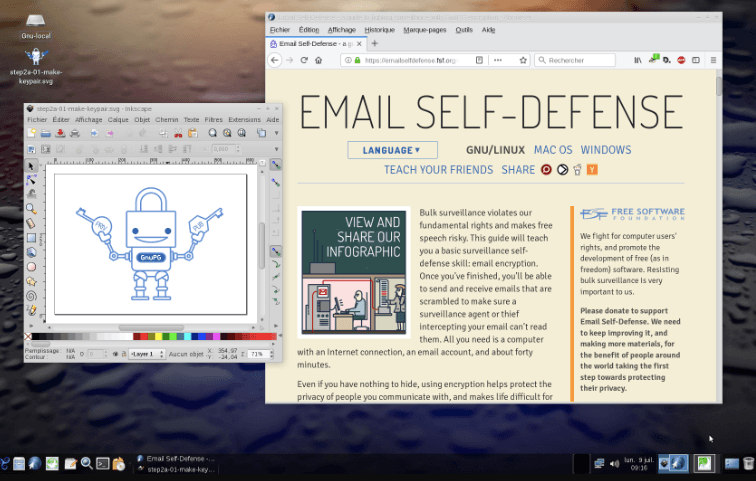
The GNU OS is one of the biggest and best alternatives, developed by the Free Software Movement (FSM) community back in 1983. Linus Torvalds developed a kernel in 1991, and the rest is history. It’s open-source and widely used, although the FSM would prefer if you didn’t call it “Linux”. Whatever the name, this is a functional and highly customisable OS, although it’ll take some getting used to without prior experience. Many vendors also now sell laptops and desktops with software preinstalled, so it’s easier than it used to be.
Debian
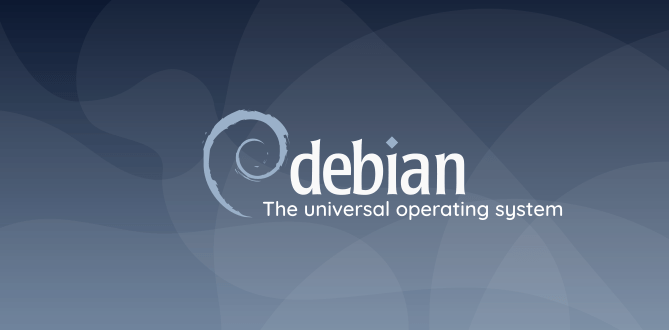
Started in 1993 by Ian Murdock, Debian is a free OS that will run on almost all personal computers. Originally typically installed via a CD, it can now be downloaded directly from the internet. It offers over 59,000 packages, which can easily be installed in the OS. Debian is used with Linux, and is developed by volunteers around the world. Committed to software freedom, following GNU’s ideals, all software is free, and is notably more stable than some competitors.
Qubes
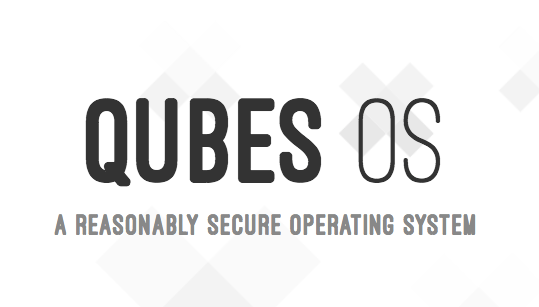
Another free and open-source option, Qubes is primarily security-focused. Anyone can use, copy, or change the software to meet their needs, while data is compartmentalised into sections called ‘Qubes’ according to usage. All Qubse are securely separated from each other, but can be integrated into a single system for easy use.
Ethical LinkedIn alternatives:
Microsoft acquired professional networking site LinkedIn for $26.2bn in cash in 2016. The company was struggling before the purchase, with its stock down by 43%, and fewer new users recorded in 2015. MS paid for the chance to integrate their software into the LinkedIn ecosystem, and to gain access to the extensive LinkedIn user base, full of professionals who would potentially use their products.
Though a quasi-social media platform, LinkedIn gets off lightly by comparison to similar websites, seldom being lumped in with the others in discussions about regulation. Nevertheless, identity theft does occur on the service, and it can be susceptible to stalking. Originally free for job seekers looking for a new role, “premium services” were soon added, such as charging employers to post jobs and to access resumés.
We’ve found an alternative that aims to do a better job:
The Dots
The Dots is “a diverse community of no-collar professionals including creators, entrepreneurs & freelancers,” with the intention of “connecting, supporting and championing the people, teams and companies that make ideas happen.” Features include a job board, as well as tips and insights, interesting articles, interviews, and events. Valuing creativity, diversity, collaboration, purpose, positivity, and drive, the site is aimed towards creative roles, but does include a range of technology-based roles.
Ethical MS Office alternatives:
In the age of Google Docs, it’s easy to forget that Microsoft used to get away with charging an incredible amount of money for basic tasks. Most users were forced to double dip for Windows hardware and software, and license fees were a major part of its business model.
In 2019, ethical alternatives continue to pick up steam, so you needn’t rely on an MS Office package to create documents and spreadsheets.
Apache OpenOffice

OpenOffice is probably the best known free MS Office alternative. Apache’s version was released in 2012, a successor to the original software of the same name. The package offers applications equivalent to Office’s, with Writer, Calc, and Impress analogous to Word, Excel, and PowerPoint. Developmental problems, such as a lack of contributors causing security vulnerabilities to go unpatched for long periods, means its user-base has shrunk from 150,000 in 2013 to fewer than 50,000 in 2019.
LibreOffice
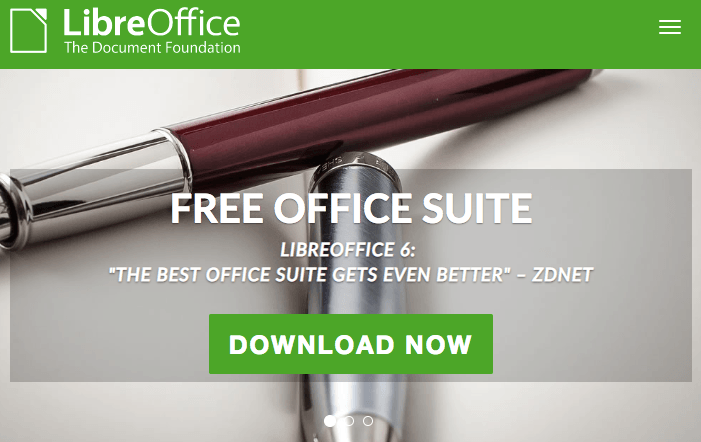
LibreOffice is another free and open-source alternative. It’s incredibly similar to OpenOffice in terms of functionality, since it originated as an offshoot of that software. However, unlike OpenOffice, the amount of users has grown rapidly since its release in 2011, with a presumable correlation between this and OpenOffice’s decline in usership. It offers Writer, Calc, and Impress, along with other MS Office-compatible programs.
OnlyOffice
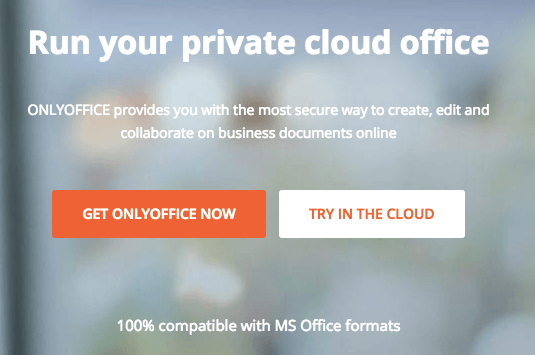
Originally designed as an internal team collaboration tool, OnlyOffice was rebranded and released as open-source in 2014. Over the next five years many additional features were developed, and it now claims to be used by over five million people worldwide. Its productivity suite is marketed to small and medium sized companies, providing “document management, project management, CRM, calendar, mail, and corporate network” functionality. Fully compatible with Microsoft Office file formats, OnlyOffice is a great option if you want to stay away from the MS infrastructure.
Ethical Hotmail/Outlook alternatives:
Once the most popular free email service, Hotmail tied in to MSN Messenger and Outlook after being purchased by Microsoft in 1997. (People who were online in the 2000s will remember.) It was subsequently rebranded as Outlook.com in July 2012.
Now dwarfed by Google’s Gmail, neither are particularly enticing if you’re looking for ethical options. Outlook includes a number of large adverts, and MS has given the NSA and others “pre-encryption stage access to email on Outlook.com, including Hotmail”. There’s also the matter of spam messages, as Outlook is one of the worst providers for screening.
In 2019, there are lots of good alternative email services, so we’ve listed a trio below:
Posteo
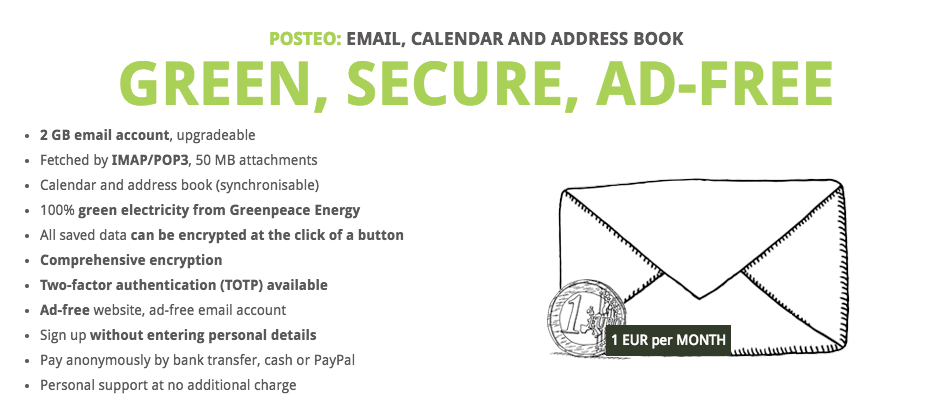
Posteo offers an ad-free experience, and the German provider has already proved willing to go to court to show its service is “an anonymous email provider; it doesn’t store any data on its customers’ identities.” Posteo is powered by 100% green electricity from Greenpeace Energy, and you can sign up without entering personal details. The company is strong on sustainability, promising to use “efficient hardware with as little toxic material as possible”.
Thunderbird
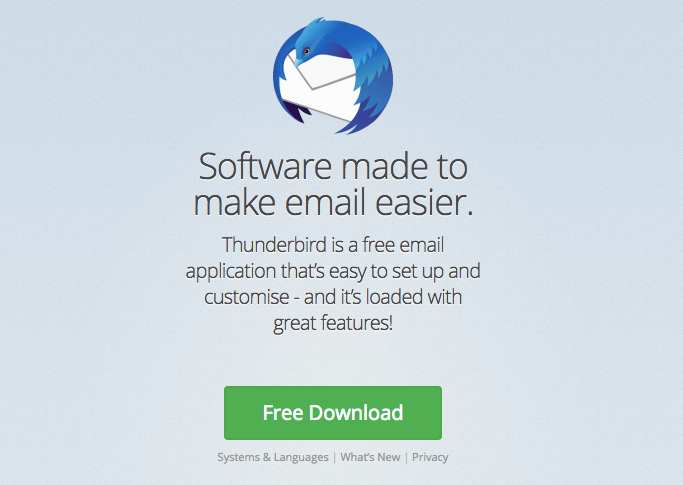
Thunderbird is an open-source email application initially released by Mozilla in 2003. It has lots of interesting features, like the ability to search the web without leaving the app, or to get a personalised email address. Thunderbird also has many add-ons available on its website, allowing customisation to suit your needs. Mozilla have developed a nifty service that’s worth checking out if you need a new email address.
ProtonMail
Based in Switzerland, ProtonMail is protected by various data laws from the region, as well as offering end-to-end encryption for all emails. It’s open-source and simple to use, making it ideal if you’re looking for something more privacy focused. Premium plans support their free version, and donations are also accepted. The paid version includes extra features such as additional storage, priority support, and supplementary email addresses.
Ethical Skype alternatives:
Another high-profile acquisition, Skype joined the MS portfolio for $8.5bn in 2011. The service allows for video and voice chat between a range of different devices via the internet, and has a significant market share. In fact, Skype is arguably the best known VOIP (voice over IP) app, but a number of alternatives are preferable in terms of issues like online security. As mentioned above, MS contractors have admitted to listening to Skype calls in 2019, and the service has been heavily compromised in the past.
Most infamously, Der Spiegel and Edward Snowden revealed that “[t]he NSA had been monitoring Skype, but since February 2011, the service has been under order from the secret US Foreign Intelligence Surveillance Court (FISC), to not only supply information to the NSA but also to make itself accessible as a source of data for the agency.”
It’s worth remembering the next time you’re planning to load up Skype for a personal conversation. We’ve listed a couple of good substitutes below:
Signal
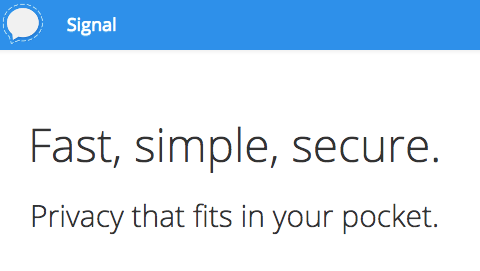
Completely free and open-source, with no ads or trackers, Signal is worth checking out if you need a trustworthy end-to-end encrypted messaging service. All messages and calls are secure, so you won’t have to worry about anyone listening in or selling your data on to advertisers. Signal developer Open Whisper Systems has been recommended by Edward Snowden, further enhancing its reputation among privacy advocates. It features read receipts for messages, the ability to block numbers, ‘disappearing messages’ which delete themselves after a period of time, and the option to turn off typing indicators.
Linphone
Linphone is an open-source VOIP app that works on every major desktop and mobile platform, including Linux. (The name derives from “Linux phone”.) It features an instant-messaging service that allows the sending of pictures and documents, and video calls can be made in HD. “Reply to” and “mark as read” options for text messages mirror popular features found on alternatives like WhatsApp.
Ethical Bing alternatives:
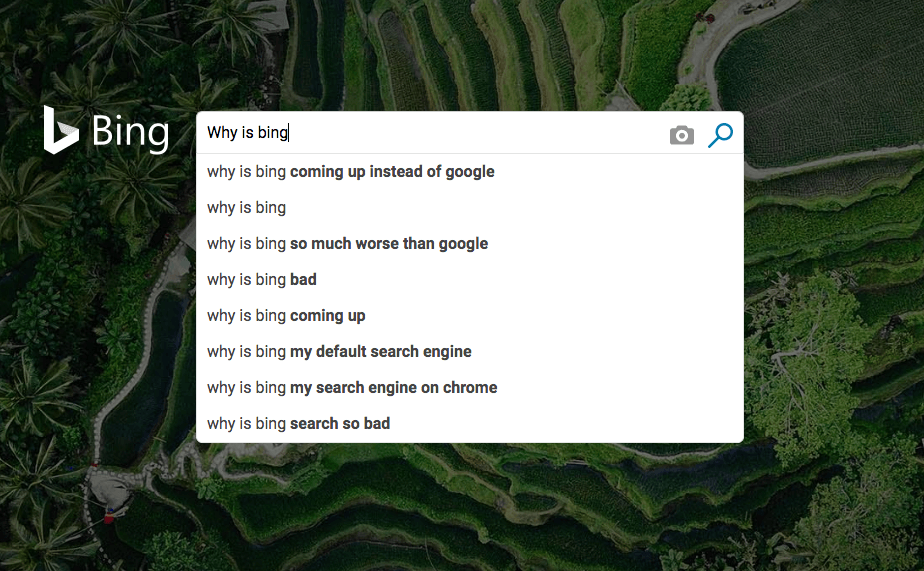
Bing is Microsoft’s answer to Google’s popular search engine – which it has failed to supplant. Released in 2009, it’s currently the third largest search engine overall, with Yahoo in second place, another victim of Google’s ascent to the top of the internet food chain. Bing isn’t a bad product, but it’s difficult to compete with a service so integral to many users’ internet experience.
However, ethical alternatives arguably offer a better service than either Google or Bing when it comes to results and privacy. They won’t sell your data on to advertisers, and many are completely open-source:
DuckDuckGo
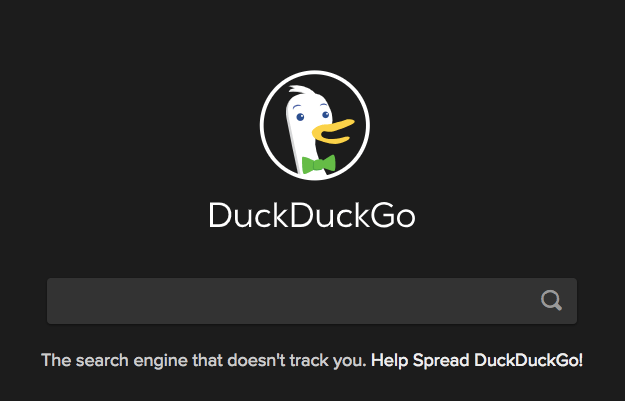
DuckDuckGo is a popular search engine ideal for replacing either Google or Bing. I personally use it in place of the former, and I’ve never had an issue with the speed or quality of its search results. It won’t track you, allowing complete privacy while browsing. DDG has been running since 2008, and accounts for 1.3bn searches per month. It’s easy to turn on the Safe Search filter for children, and it also comes with a browser extension to keep trackers at bay. You’ll be able to customise your experience with themes like dark mode (seen above), as well as additional privacy settings.
MetaGer
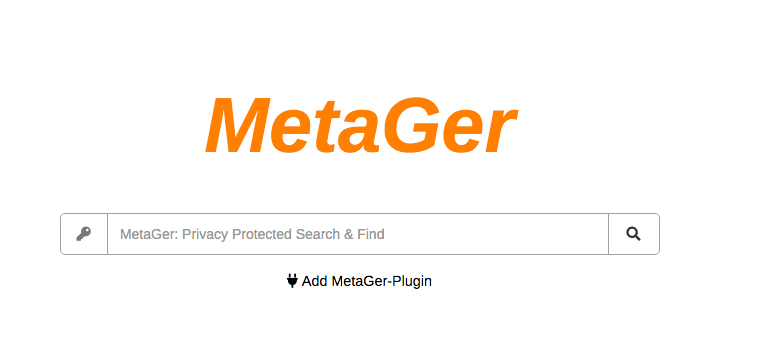
MetaGer is a privacy-protected search engine based in Germany. It was released by the Association for Free Access to Knowledge and the University of Hannover, with an English version launched in 2013. It promises to protect user data, since it “[does] not pursue commercial issues”, relying instead on donations to keep the operation running. Though using the Scopia and Bing search engines for reference, Bing results can be filtered out if users prefer.
How to avoid using Microsoft
Microsoft has its fingers in so many pies, and owns many leading products in a number of different tech industries. It’s hard to avoid the company’s reach, but you can take steps to avoid its clutches. Firstly, you’ll need to identify and cut down on use of its services, and keep an eye on the development of up-and-coming ethical alternatives.
Helping to spread the word would also be helpful, and we’d welcome any contributions if we’ve missed any great alternatives to MS services or products.
Resources: Organisations
Internet Society (link)
GNU (link)



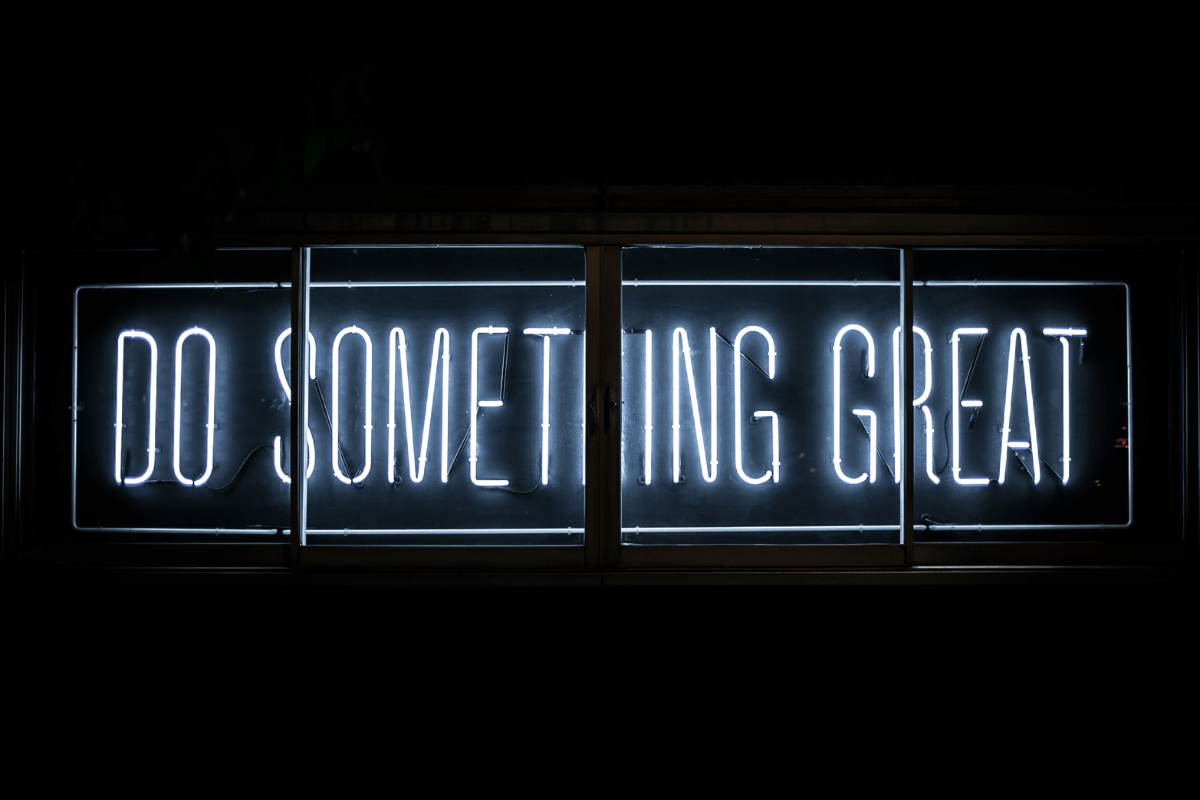
Leave a Reply